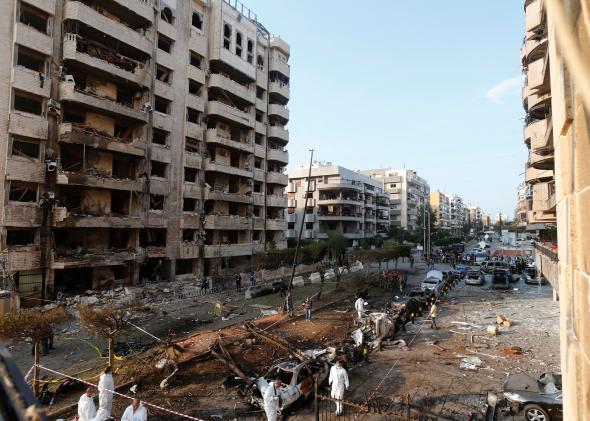Syria-related violence has been spreading into Lebanon and other neighboring countries for months now, but for the first time, Bashar al-Assad’s Iranian allies were directly targeted today with a double bombing that hit the Iranian embassy in Beirut, killing at least 22 people including the embassy’s cultural attache.
The Iranian ambassador’s quick attempt to blame this on Israel aside, attention is likely to focus on anti-Assad Sunni militant groups. The al-Qaida-linked Abudllah Azzam Brigades have claimed credit for the bombing, though that probably shouldn’t be viewed as definitive.
The bombings comes as Assad’s forces, back in Syria, have been making major gains outside Damascus and Aleppo. Government forces recently captured the strategically important town of Qara on the Lebanese border in an effort to cut off one of the rebels’ primary supply groups.
With rebel forces increasingly fractured and ideologically divided, and seeming to be losing the ability to hold large areas of territory at the same time that money and weapons continue to flow into the country, it seems likely that at least some groups will turn to a greater extent toward attacking Assad’s supporters outside Syria rather than battling his troops for control of towns within it.
As Rania Abouzeid writes, “The physical fight for Syria will likely not be contained within Syria’s borders. Ideologically, it never was.” As Assad seems to be winning the fight on the ground, we may be getting a look at the next phase of this increasingly complex war.
Of course, another way of looking at it is that this is the continuation of a much longer cycle of violence. As the BBC’s Kim Ghattas notes, this year marks the 30th anniversary of the bombing of the U.S. embassy in Beirut, an act claimed by a pro-Iranian militant group.
